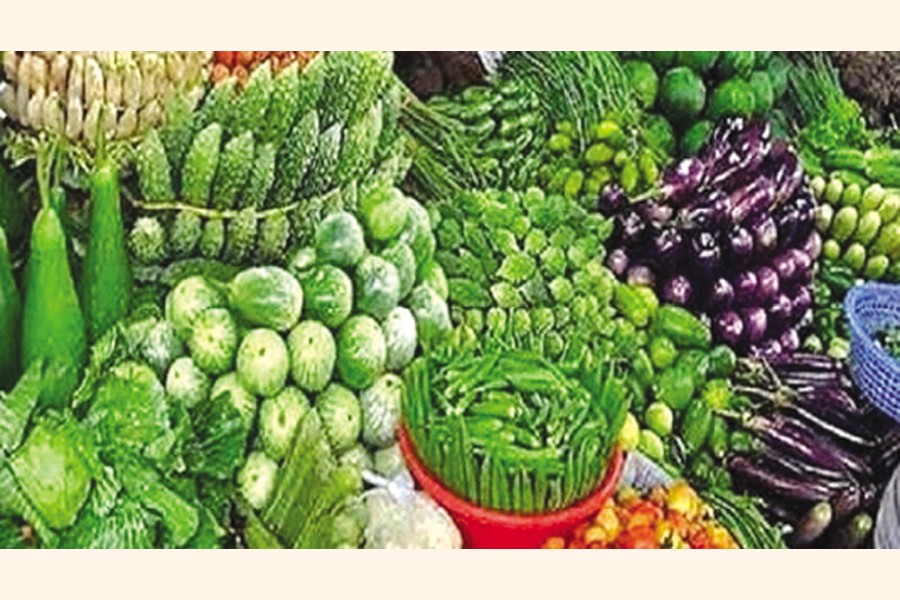Move to designate BADC cold stores for storing exportable agricultural items

Published :
Updated :

In an effort to streamline the shipment of fresh agri produce and bolster export revenues, the government has initiated measures to restrict the usage of six BADC cold stores near Dhaka airport as warehouses, according to sources.
The decision comes in the wake of concerns over the misuse of these facilities by non-exporters, leading to disruptions in the timely transportation of various perishable items, including fruits and vegetables, for local exporters.
The cold stores, owned and operated by the Bangladesh Agricultural Development Corporation (BADC), are located adjacent to the Hazrat Shahjalal International Airport (HSIA).
After a recent visit to the facilities, the Export Promotion Bureau (EPB) - a state agency responsible for promoting exports - has identified those as key establishments in the export process.
The EPB urged the BADC to swiftly execute the directives set forth during a meeting of the National Trade Facilitation Committee (NTFC).
With a combined capacity of 240 tonnes, the cold storage facilities can accommodate 30 tonnes of vegetables and fruits, 120 tonnes of processed foods, fish, and meat, along with an additional 30 tonnes reserved for emergency medical supplies, according to an official document.
The current usage of these cold storages as long-term warehouses for non-exportable items has created a scarcity of storage space for exportable agricultural goods.
Perishable products are often left in open spaces before shipment. The adverse effects of such practices are evident, as the product quality deteriorates due to prolonged exposure to the sun, rendering them unsuitable for export.
The EPB has requested the BADC to augment the storage capacity for fresh fruits and vegetables.
A high-powered team from the bureau, led by its director general-1, previously identified constraints during an inspection at the country's largest airport and made a series of recommendations.
The EPB team highlighted that the export of agricultural products through the Dhaka airport is impeded by various factors, including the lack of a separate scanning system, insufficient cold storage facilities and inadequate explosive detection systems (EDS).
To address those obstacles, the EPB suggested introducing separate lanes for scanning perishable and non-perishable export items, with a priority on scanning perishable items.
The team pinpointed the lack of ample cold storage and scanning facilities as the main reasons hindering the growth of agro items' export to the expected level, as stated by a high-ranking official of the organisation.
The inspection report from EPB recommended an urgent resumption of the ineffective EDS. They also called for linking the EDS with the respective customs office to streamline product testing procedures.
Besides, the EPB team advocated fixing scanning charges at the airport at a logical level, wherever feasible.
The team favoured taking a joint project by the EPB and the BADC - at Dhaka airport third terminal - for doubling the capacity of the existing cold storage facility for preserving fresh fruits and vegetables.
The state-run agency recommended writing to the third terminal project implementation authority to take necessary steps to ease the process of loading and unloading fresh fruits, vegetables and other perishable items as well as building a large warehouse to ease the existing obstacles towards smooth scanning and storing export goods.
According to industry insiders, the prospect of agricultural products in Bangladesh's export basket is bright, with export proceeds surpassing the billion-dollar mark in FY 2021-22.
According to EPB data, the export of agricultural goods and relevant processed foods garnered foreign exchange worth $1.16 billion, representing a significant increase of 13.04 per cent year-on-year.
In the previous fiscal year, the country's agro products achieved a significant milestone, crossing the billion-dollar mark in export earnings for the first time, with shipments totalling $1.02 billion.
As per EPB data, certain items performed exceptionally well in export earnings last year. These include edible vegetables and specific root and tubers ($99.91 million), coffee, tea, meat, and spices ($49.54 million), ginger, saffron, turmeric (curcuma), and other spices ($39.66 million), sugar confectionery ($26.93 million), malt extract, food preparations of flour ($67.23 million) and fruit juices and vegetable juices ($58.20 million).
Optimism abounds among exporters, who foresee substantial growth in agro-product exports in the future. This optimism is driven by many Bangladeshi companies actively seeking to expand their overseas markets, with the agro-processing industry showing promising signs of flourishing.
Exporters are hopeful of witnessing a significant surge in export volumes within the next couple of years. The largest agro-processed products exporter, PRAN-RFL Group, has already made a noteworthy announcement, setting a target to double its export earnings to $1.0 billion by the year 2025.
A major share of Bangladeshi agro-products finds its way to Middle-Eastern markets, in addition to certain Asian, African, and South-Asian countries.
rezamumu@gmail.com


 For all latest news, follow The Financial Express Google News channel.
For all latest news, follow The Financial Express Google News channel.